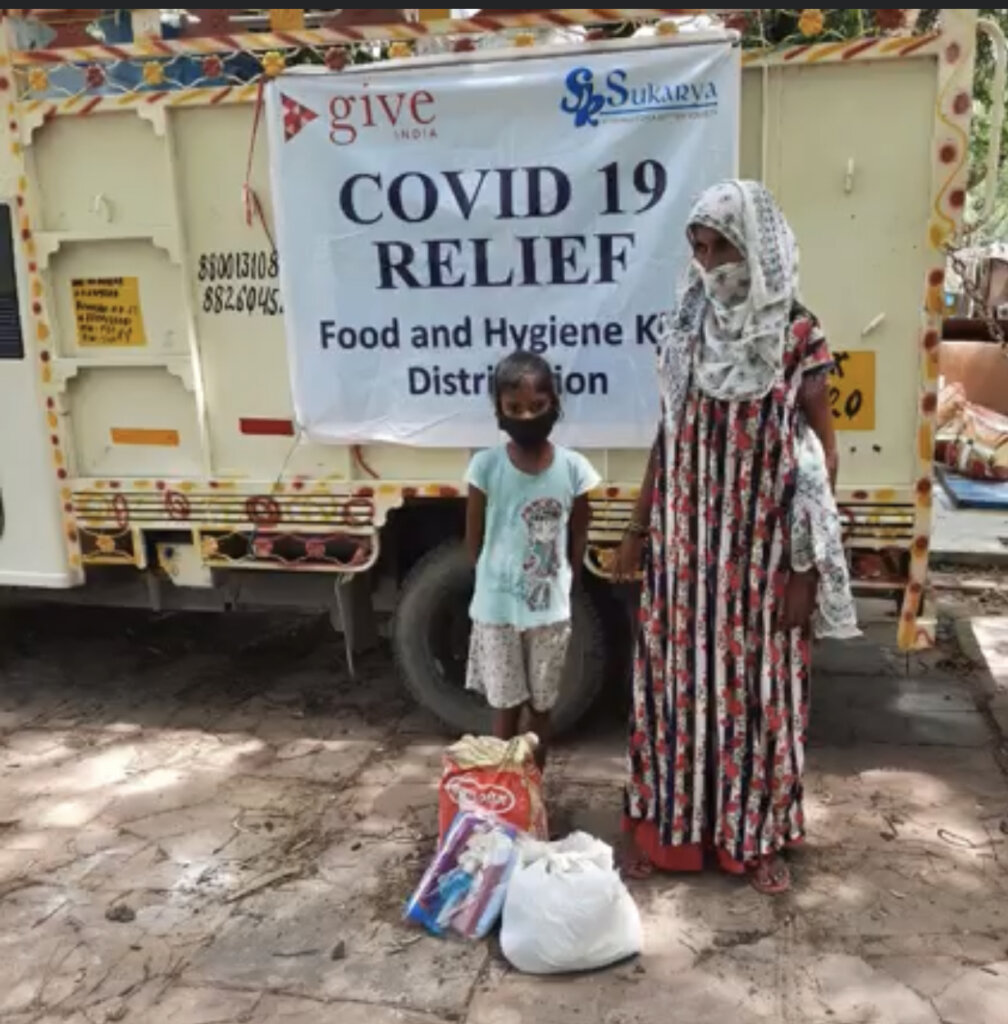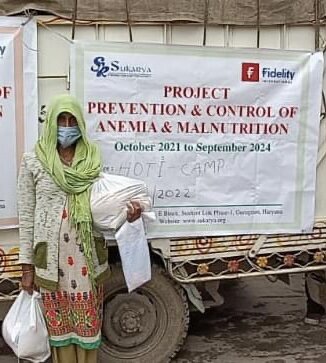By DEBADUTTA DASH | Secretary, SUKARYA USA
Over the past years, the COVID-19 pandemic has taken different forms in our slum communities. The government has taken various preventive measures to deal with this situation, including multiple shutdowns/ lockdowns at different phases. However, our slum communities have been in numerous waves of COVID-19 since mid-March 2021. As a result, poor and marginalized people residing in urban slums, especially in Delhi and Gurugram, again got stuck in the complex web of pandemic consequences, a “new normal” from them.
Long-term economic shocks because of COVID-19 have forced slum dwellers to search for work. Most people living in slums are involved in poorly paid jobs such as factory workers and informal economic sectors (domestic workers, rickshaw pullers, van drivers, daily wage earners). The overall economy was greatly affected by the first nationwide lockdown and has not yet recovered, and the second lockdown has only intensified the adverse effects. Many slum dwellers lost their jobs, or their incomes have drastically decreased. They are battling to survive by spending their savings, selling their property, taking a loan, or borrowing money from relatives. The poor slum dwellers are immersed in the sea of starvation daily. They are more afraid of their hungry stomach than they are of Corona. As their financial condition worsens, they ignore the lockdown, take risks on health, and look for a livelihood.
Since the first lockdown in 2020, Team Sukarya, supported by many giving organizations and individuals, has provided Covid prevention kits, training sessions, and food assistance to help poor slum dwellers. However, during the second and third phases of lockdown, very few institutions or individuals came forward to help. As a result, even though the poor may have somehow survived by getting help from Sukarya in the initial phases of the lockdown, it has become difficult for them to survive without much support in continuity. According to slum dwellers, where the poor slum population struggles to manage their daily food, it is nothing but a luxury for them to follow lockdowns. A resident of the Hothi slum said, “We do not have rice in our house; what else can be happened by the corona!”
Links:
Project reports on GlobalGiving are posted directly to globalgiving.org by Project Leaders as they are completed, generally every 3-4 months. To protect the integrity of these documents, GlobalGiving does not alter them; therefore you may find some language or formatting issues.
If you donate to this project or have donated to this project, you can receive an email when this project posts a report. You can also subscribe for reports without donating.

